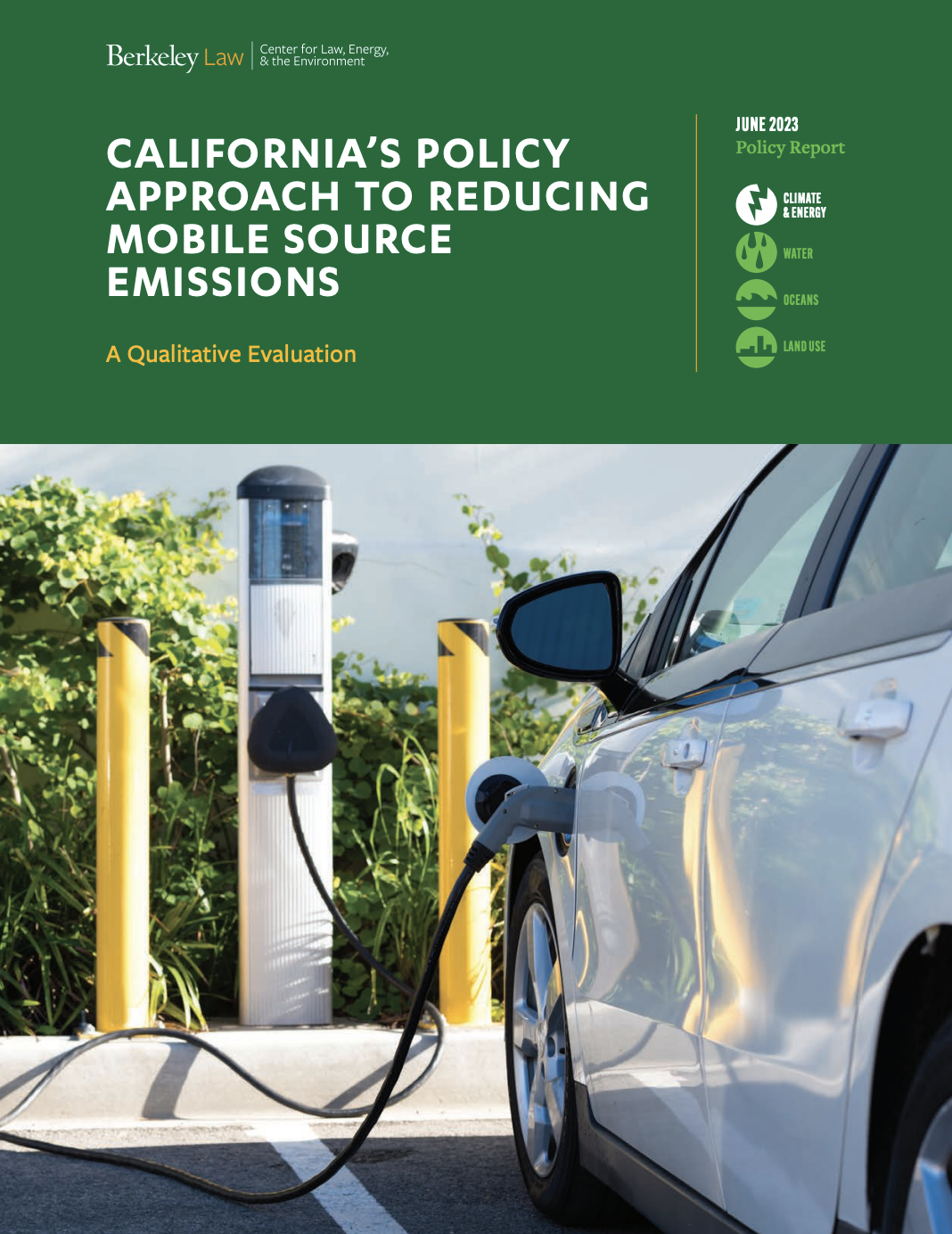June 2023
The California Air Resources Board (CARB) is the state’s lead agency on zero-emission vehicle policy, from its first-in-the-nation mandate on automakers to produce zero-emission models to its wide-ranging incentive programs, among other policy approaches. In 2021, the California State Auditor released a report highlighting CARB’s insufficient efforts in quantifying the actual reductions in greenhouse gas (GHG) emissions achieved by its various transportation programs.
Following the auditor’s report, CARB contracted with UC Berkeley Law’s Center for Law, Energy and the Environment (CLEE), along with a team of experts at the Plug-In Hybrid & Electric Vehicle Research Center at UC Davis and Transportation Sustainability Research Center at UC Berkeley, to examine the impacts of their zero-emission vehicle programs and to develop recommendations on long-term data collection and analysis tools.
Our new report assesses the impacts of CARB’s policy approach on zero-emission vehicles. While the research team acknowledges the need for additional data and analysis to evaluate the impacts of CARB’s suite of policies, regulations, and incentives, we believe that the Auditor’s report greatly underestimated the challenge of untangling the effects of any specific incentive or regulation on the broader zero-emission vehicle market.
Our report outlines several recommendations for CARB going forward to better address this challenge, which include:
- Conducting a more comprehensive analysis of the current ZEV sales and vehicle registration data to better quantify impacts from specific ZEV programs.
- Compare ZEV purchases in California to those in other states with ZEV incentive programs, as well as states without such programs, to provide a comparative analysis that could indicate how California-specific programs may be affecting ZEV adoption
- Establish consistent survey parameters across all the incentive programs to better inform the quantification estimates and analysis of consumer decision-making involving ZEVs.
Gaining an understanding of the most effective mix of policies to optimize ZEV deployment will not only benefit California going forward but will also provide valuable insights to other jurisdictions considering different policy approaches.
Access the report here to see all the recommendations and conclusions.
Contact Ethan Elkind or Shruti Sarode for more information.
